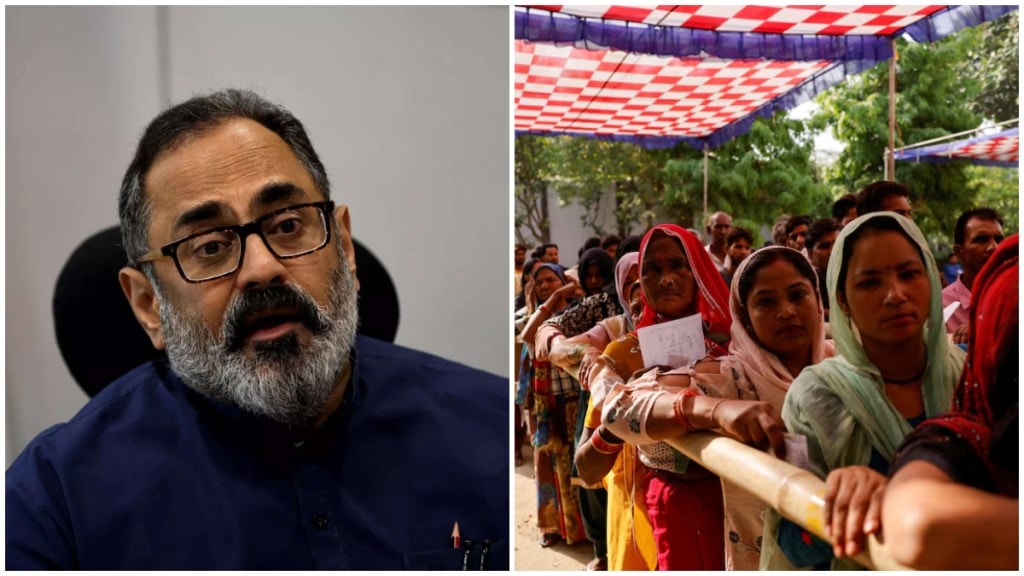India has revised its electoral rolls many times before, but the current revision is seen as more urgent than ever, writes Rajya Sabha MP and BJP’s Kerala state president Rajeev Chandrasekhar for The Indian Express. He says that this is because of the allegations that have emerged regarding some INDI Alliance governments which allowed illegal immigrants to be added to Aadhaar with fake identities and then used those details to include them in the voter lists. Many believe this has weakened India’s democratic process, making it necessary to revisit the issue.
How was Aadhaar born?
Chandrasekhar writes, the idea of a National Identity Card was first raised in 2002 by then Prime Minister AB Vajpayee and Home Minister LK Advani. The plan was to clearly identify citizens and non-citizens. But in 2004, after Manmohan Singh became Prime Minister, the focus shifted. In 2009, the Unique Identification Authority of India (UIDAI) was set up with Nandan Nilekani as chairman. By 2010, Aadhaar was launched for all residents, and not just citizens. Chandrasekhar says that the definition of “resident” was broad and did not require checks on citizenship.
That same year, he adds, that the Standing Committee on Finance led by Yashwant Sinha warned against this diluted definition and raised concerns about private players being allowed to handle enrolments without proper checks. The committee rejected the National Identification Authority of India Bill, 2010, and asked the government to draft a new law with stronger safeguards. Despite this, enrolments went ahead, and in 2011 UID was rebranded as Aadhaar.
Enrolments without verification
Between 2010 and 2012, Aadhaar enrolments were carried out by private agencies. By 2012, enrolment numbers had crossed 40 crore. Chandrashekar says that many illegal immigrants managed to get Aadhaar cards using fake documents. The Home Ministry, led by P. Chidambaram, pushed for Aadhaar to be linked with the National Population Register to avoid misuse, but the Singh government overruled it in 2012, the minister adds. In Parliament, the issue kept coming up as concerns grew over non-citizens obtaining Aadhaar and the security risks that came with it.
In 2013, Aadhaar was made valid ID proof for voting. That same year, Justice KS Puttaswamy and others filed a PIL against Aadhaar. By 2014, when the Modi government came to power, Aadhaar enrolments had crossed 65 crore, with an estimated Rs 15,000–20,000 crore already spent.
Fixing Aadhaar and new findings
Chandrasekhar further writes that although there were demands to scrap Aadhaar, the Modi government decided to strengthen it instead of wasting the huge investment. In 2016, the Aadhaar Act was passed, tightening enrolment rules and due diligence. However, in 2020, the Comptroller and Auditor General (CAG) reported that many Aadhaar enrolments between 2010 and 2016 lacked proper documents or oversight.
The 2021 CAG report went further, stating that the quality of data in the initial Aadhaar records was not strong enough to guarantee uniqueness of identity. It found that UIDAI did not ask for specific documents to confirm residency and relied only on self-declarations. This meant there was no assurance that all Aadhaar holders were genuine residents of India. Even after a decade, UIDAI had not fully matched Aadhaar numbers with personal documents, leaving significant gaps.
Aadhaar, illegal enrolments, and electoral rolls
“The policies of the UPA government gave short shrift to both the integrity of electoral rolls and national security by diluting the citizenship requirements and replacing them with a vague, ambiguous, undefined “resident”. It is clear that there has been a large-scale enrolment of illegal immigrants. Because of the policies of the Singh government, it is clear that illegal and non-Indian citizens have also made it into the electoral rolls,” Chandrasekhar wrote.
There is a persistent fear that “India’s electoral rolls have been contaminated.” Chandrasekhar adds that many of the illegal migrants who have been added to the electoral rolls are now altering the local demographics and weakening India’s democracy. This is why the ongoing Special Intensive Revision (SIR) of voter rolls is being described as vital not just for border states but for the entire country.

